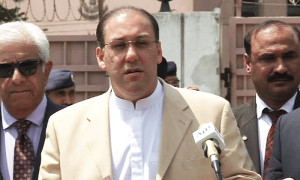RiazHaq
Senator (1k+ posts)
Pakistan's $20 Billion Tourism Industry is Booming
Pakistan's tourism industry, currently estimated at $20 billion (6.9% of GDP in 2016), is booming, according to data available from multiple reliable sources. World Travel and Tourism Council (WTTC) forecasts it to grow to over $36 billion within a decade.
Economic Impact of Tourism:
Pakistan tourism industry generates $20 billion in revenue and supports 3.6 million jobs directly and indirectly, according to the World Travel and Tourism Council. Foreign visitors generate nearly a billion US$ in exports.

Tourism Growth:
Significantly improved security situation has helped boost annual tourist arrivals in Pakistan by 300% since 2013 to 1.75 million in 2016, while domestic travelers increased 30% to 38.3 million, according to the state-owned Pakistan Tourism Development Corp. Hotel bookings increased 80 percent in 2016, according to Jovago, Pakistan’s biggest hotel booking website.
By contrast, foreign tourist arrivals in the country’s larger neighbor, India, jumped from 6.97 million in 2013 to 8.8 million in 2016, according to Indian government figures. 88% of India's and 92% of Pakistan's tourism revenue is domestic. India's tourism industry is worth $209 billion (9.6% of of GDP in 2016), according to WTTC.
A story in the Financial Times, a British newspaper, quotes British tour operator Jonny Bealby as saying, “While I am sure this will raise some eyebrows, we are starting to see a marked increase in tourism to Pakistan". Bealby's company arranged 55% more clients to Pakistan in 2017 compared with 2016, and advance bookings are more than 100 per cent up on this point 12 months ago, according to the Financial Times.
Top Adventure Tourism Destination:
British Backpackers Society has recently ranked Pakistan as its top destination for adventure tourism. The Society describes Pakistan “one of the friendliest countries on earth, with mountain scenery that is beyond anyone’s wildest imagination”.

Pakistan's northern areas are a top destination for adventure-seekers interested in mountain climbing, white water rafting, extreme kayaking and helicopter skiing.

Pakistan Tourism Promotion:
Pakistan government's tourism campaign — including covering buses in several major world cities with beautiful pictures of Pakistan's tourist attraction — have helped raise the country’s profile. Increased investments in roads, airports and other infrastructure have helped ease travel.

Pakistan government has announced its decision to provide 30 day tourist visa on arrival for visitors from 24 countries on three continents.
Summary:
Tourism industry in Pakistan is booming with 300% increase in foreign tourist arrivals since 2013. It contributed $20 billion (6.9% of GDP in 2016) and supported 3.6 million jobs in 2016. World Travel and Tourism Council (WTTC) forecasts it to grow to over $36 billion within a decade.
Here's a video about Pakistan narrated by an American Journalist Cynthia Ritchie:
Source
Pakistan's tourism industry, currently estimated at $20 billion (6.9% of GDP in 2016), is booming, according to data available from multiple reliable sources. World Travel and Tourism Council (WTTC) forecasts it to grow to over $36 billion within a decade.
Economic Impact of Tourism:
Pakistan tourism industry generates $20 billion in revenue and supports 3.6 million jobs directly and indirectly, according to the World Travel and Tourism Council. Foreign visitors generate nearly a billion US$ in exports.

Tourism Growth:
Significantly improved security situation has helped boost annual tourist arrivals in Pakistan by 300% since 2013 to 1.75 million in 2016, while domestic travelers increased 30% to 38.3 million, according to the state-owned Pakistan Tourism Development Corp. Hotel bookings increased 80 percent in 2016, according to Jovago, Pakistan’s biggest hotel booking website.
By contrast, foreign tourist arrivals in the country’s larger neighbor, India, jumped from 6.97 million in 2013 to 8.8 million in 2016, according to Indian government figures. 88% of India's and 92% of Pakistan's tourism revenue is domestic. India's tourism industry is worth $209 billion (9.6% of of GDP in 2016), according to WTTC.
A story in the Financial Times, a British newspaper, quotes British tour operator Jonny Bealby as saying, “While I am sure this will raise some eyebrows, we are starting to see a marked increase in tourism to Pakistan". Bealby's company arranged 55% more clients to Pakistan in 2017 compared with 2016, and advance bookings are more than 100 per cent up on this point 12 months ago, according to the Financial Times.
Top Adventure Tourism Destination:
British Backpackers Society has recently ranked Pakistan as its top destination for adventure tourism. The Society describes Pakistan “one of the friendliest countries on earth, with mountain scenery that is beyond anyone’s wildest imagination”.

Pakistan's northern areas are a top destination for adventure-seekers interested in mountain climbing, white water rafting, extreme kayaking and helicopter skiing.

Pakistan Tourism Promotion:
Pakistan government's tourism campaign — including covering buses in several major world cities with beautiful pictures of Pakistan's tourist attraction — have helped raise the country’s profile. Increased investments in roads, airports and other infrastructure have helped ease travel.

Pakistan government has announced its decision to provide 30 day tourist visa on arrival for visitors from 24 countries on three continents.
Summary:
Tourism industry in Pakistan is booming with 300% increase in foreign tourist arrivals since 2013. It contributed $20 billion (6.9% of GDP in 2016) and supported 3.6 million jobs in 2016. World Travel and Tourism Council (WTTC) forecasts it to grow to over $36 billion within a decade.
Here's a video about Pakistan narrated by an American Journalist Cynthia Ritchie:
Source
Last edited by a moderator:

































